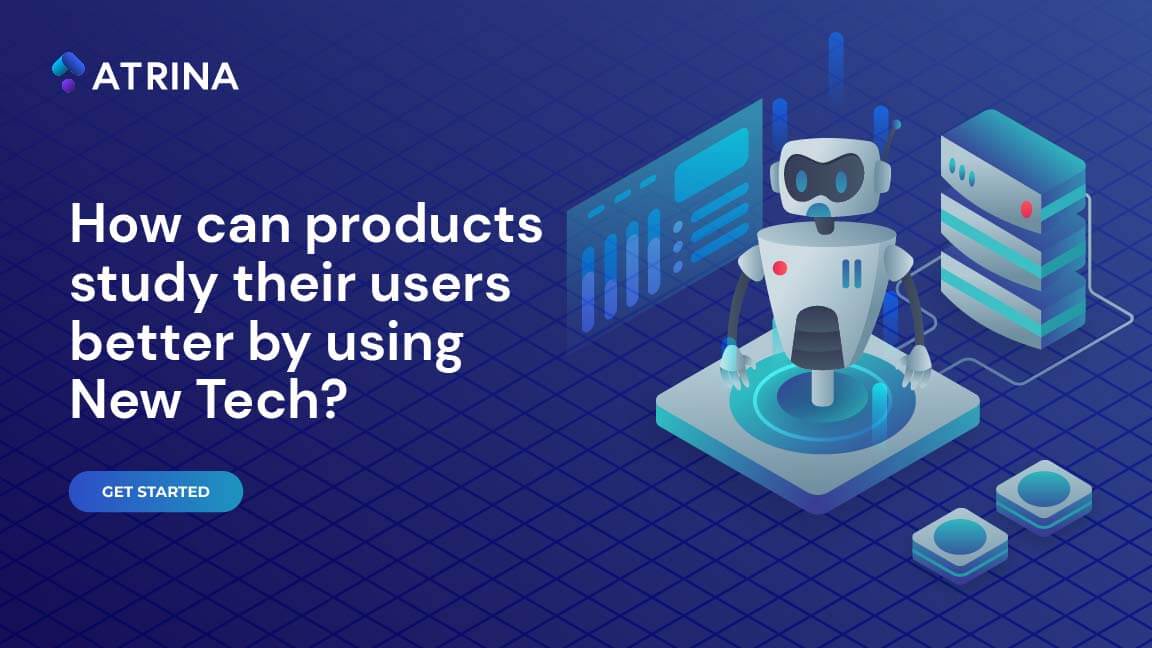As the world of technology continues to progress, the trend of personalised products is becoming increasingly prevalent. To serve users better, products should strive to comprehend their target audience’s distinct requirements and choices.
This is where cutting-edge technologies such as Artificial Intelligence (AI) and Machine Learning (ML) come into the picture. In this blog, we will explore how products can use AI/ML to understand their users better and improve their overall experience.
Understanding AI and ML
Artificial Intelligence:
- It is a technology that allows machines to perform tasks that usually require human intelligence.
- It involves the development of complex algorithms that learn and adapt to data
- Through AI, machines can simulate human intelligence and make data-driven decisions.
- AI is transforming various industries and changing the way businesses operate
Machine Learning:
- It is a critical part of AI that involves creating algorithms capable of learning from data and making predictions or decisions.
- This technique enables machines to enhance their performance over time and develop more accurate and effective systems.
- It is advantageous in situations where traditional programming techniques may not be feasible due to complexity or lack of data.
- Machine learning has broad applications and can be used to create powerful tools for various tasks.
How AI/ML can help products study their users better?
Product Manager:
Product managers are responsible for developing and overseeing products from conception to launch. One of the core functions of product management is to ensure that its products are designed to meet the user’s needs. With the use of AI/ML:
- They can provide better insights into user behavior.
- Analyzing user data can identify patterns for developing better products.
- It can lead to more accurate user data and better customer experience.
Predictive analytics:
Products can utilize AI/ML to anticipate user behavior and preferences by analyzing their data. This helps products personalize their offerings to match user preferences.
For instance, Amazon uses AI to predict which products a user will likely purchase based on their search and purchase history.
Chatbots:
AI-powered chatbots can enhance customer service by providing real-time answers to user inquiries. Through the analysis of user queries, chatbots offer personalized responses that cater to the user’s specific needs.
H&M, for instance, utilizes an AI-powered chatbot to assist users in discovering the ideal outfit.
Sentiment analysis:
Products can use AI/ML to analyze user sentiment and gain insight into how users feel about their offerings. This involves analyzing user reviews and social media activity to identify areas for improvement and tailor offerings accordingly.
One example of this is Yelp, which uses ML to analyze user reviews and identify common complaints about restaurants.
Recommendation engines:
With the help of AI/ML, product recommendation engines can be enhanced. This is achieved by analyzing user data, which allows for the recommendation of products and services that are more likely to be of interest to the user.
Spotify, for instance, utilizes ML to suggest songs to users based on their listening history.
Here are some additional examples of products that utilize AI/ML to enhance their understanding of their users:
Facebook: It utilizes AI/ML technology to evaluate user data and offer tailored content suggestions. By scrutinizing user behavior, interests, and other information, the algorithms can anticipate the content that users may find appealing.
Fitbit: They utilize AI/ML to analyze user data and generate personalized fitness recommendations. By analyzing user activity history, sleep patterns, and other data, the algorithms can predict what fitness goals and activities users may be interested in pursuing.
Google: It utilizes AI technology to tailor search results according to a user’s search history. Moreover, it employs ML to enhance Google Assistant’s voice recognition system.
Uber: They use AI and ML technologies to enhance their services. AI helps predict rider demand and optimize driver routes, while ML personalizes the experience for individual riders.
Challenges of using AI/ML to study users
Artificial intelligence(AI) and machine learning(ML) fields have great potential for products that want to understand their users better. Nonetheless, several formidable challenges must be tackled when it comes to data privacy.
To utilise AI/ML to its fullest potential, products need to have access to significant amounts of user data. However, this may trigger concerns about the security and privacy of the data.
Another significant challenge that arises with AI/ML algorithms is the issue of bias. If the data used to train these algorithms is biased, the recommendations and decisions generated by the algorithms may also be subjective.
To illustrate, if a product’s user base predominantly consists of men, the recommendations provided may be inclined toward male preferences.
Furthermore, a challenge that arises with these algorithms is the need for more transparency. The complexity of AI/ML algorithms often makes it difficult for users to comprehend how their data is being utilized and why certain recommendations are being suggested.
This lack of transparency can potentially cause confusion and mistrust among users.
Best practices for using AI/ML to study users
To address these challenges, there are several best practices that products can follow when using AI/ML to study their users:
Transparency: To establish trust with users and make them feel at ease sharing their data, products must be upfront about their usage of AI/ML algorithms and user data. Transparency is key.
Data privacy: Products need to give utmost priority to data privacy and security. This can be achieved by incorporating robust data encryption, restricting access to user data, and seeking user consent before collecting data.
Diversity and inclusion: It’s also crucial for companies to make sure that their products are inclusive and cater to a diverse group of users. This will decrease the chances of any bias in the AI/ML algorithms and make sure that the recommendations given are suitable for a broader range of preferences.
Continuous monitoring: To provide accurate and unbiased recommendations, products utilizing these algorithms should conduct regular audits and tests to monitor their performance.
Conclusion
Artificial intelligence and machine learning can potentially transform how products study users. Through the analysis of user data, products can tailor their offerings according to individual preferences, forecast user behavior, enhance customer service, gauge user sentiment, and refine their recommendation engines.
With technology constantly evolving, we can anticipate a surge in the number of products leveraging AI/ML to gain deeper insights into their users and deliver highly personalized offerings.
Digital products are crucial today, and AI/ML technologies play a key role in personalizing them for individual users.
At Atrina, we understand the significance of using AI/ML to study users and offer personalized solutions. Our objective is to provide the best product development services to assist our clients in creating impactful products.
Whether you have an idea for a social networking platform, a FinTech app, or a HealthTech solution, we possess the technical expertise to turn your vision into reality.
Our team comprises experts utilizing AI/ML technologies to analyze user data, predict user behavior, and offer personalized solutions.
We are enthusiastic about developing products that can positively impact the world, and we collaborate closely with our clients to ensure that their vision is accurately reflected in the final product.
Note: This Post Was First Published on https://atriina.com/blogs/study-product-users-using-ai-ml/


No comments yet